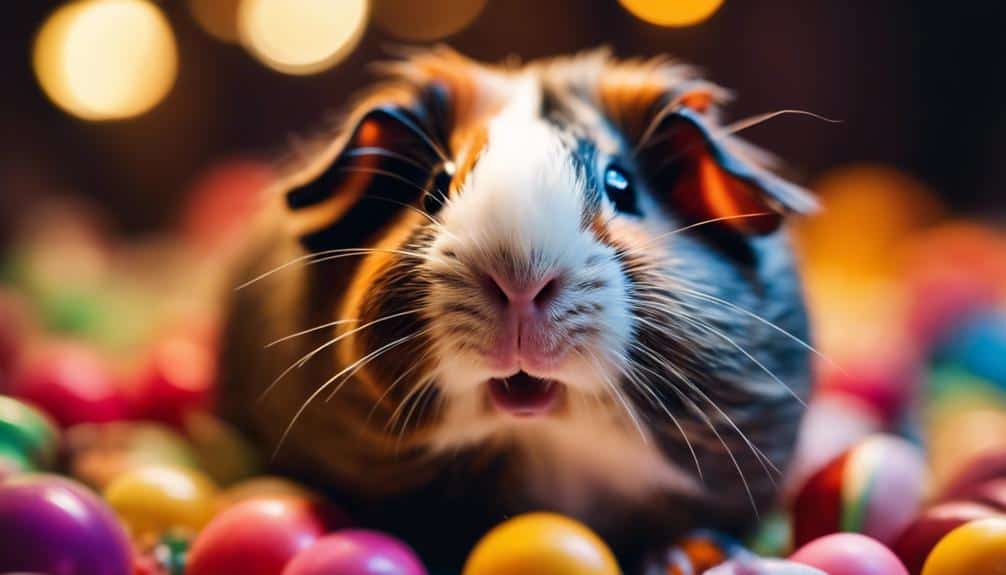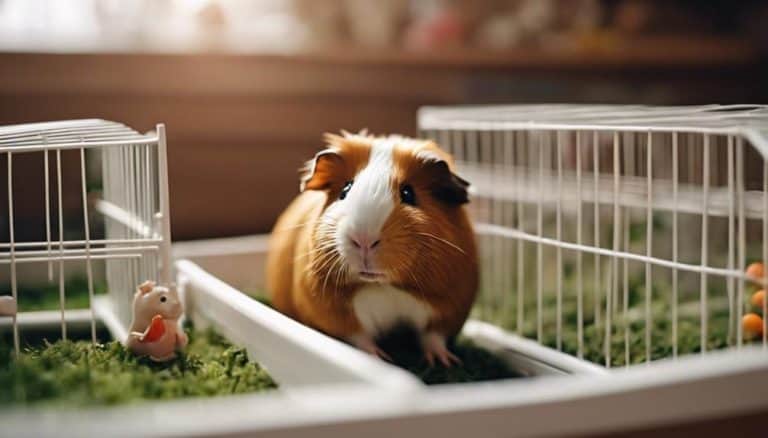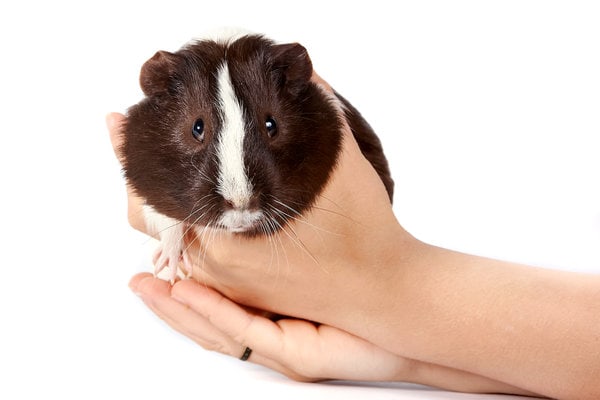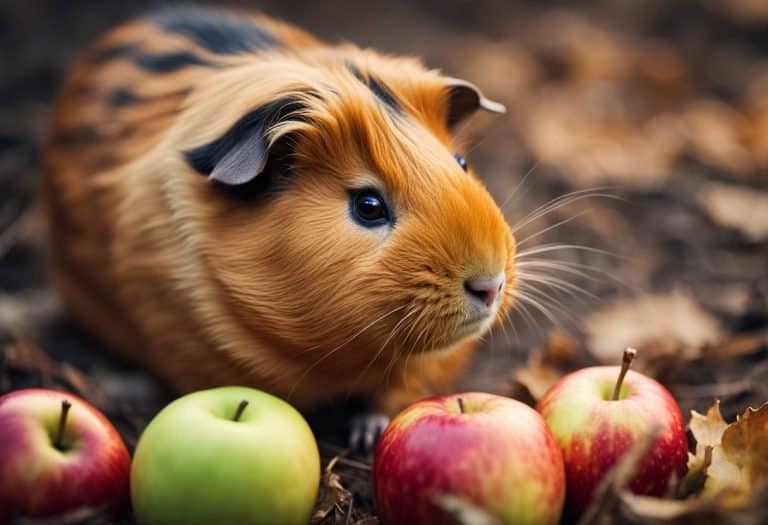What Does It Mean When Guinea Pigs Squeak: A Guide
As we observe our guinea pigs scampering around their enclosure, the symphony of squeaks fills the air, each note seemingly carrying a hidden message.
Have you ever wondered what lies behind these adorable vocalizations that captivate us so? Understanding the meanings of guinea pig squeaks can reveal a world of communication and emotions we might have overlooked.
Join us as we unravel the enigmatic language of our beloved furry companions, shedding light on their squeaks and what they truly signify.
Decoding Different Types of Guinea Pig Squeaks
Deciphering the various types of squeaks emitted by guinea pigs allows us to understand their different needs and emotions more effectively. Guinea pigs make a variety of noises to communicate with us, from gentle purring to loud squeaks. When a guinea pig needs attention, they may emit soft, low-pitched squeaks that are often accompanied by gentle nudges or nibbles. On the other hand, high-pitched squeaks can indicate discomfort, fear, or distress. Paying attention to their body language along with the sounds they make is essential in interpreting their messages accurately.
In cold weather, guinea pigs might produce shivery, chattering sounds to express their discomfort. Loss of appetite or sudden changes in their squeaking patterns could also indicate underlying health issues that require immediate attention. Understanding the context and frequency of these vocalizations is key to ensuring the well-being of our guinea pig companions.
Understanding Guinea Pig Vocalizations
Understanding guinea pig vocalizations involves recognizing the various sounds they make to convey their emotions and needs effectively. Guinea pigs squeak to communicate a range of feelings, from potential pain, discomfort, or the need for attention to excitement, especially when anticipating food or playtime.
When interpreting these squeaks, paying attention to the pitch, duration, and context is vital as they offer insights into the guinea pig’s emotional state. Regular observation and interaction with your guinea pig can help you understand and respond appropriately to their vocalizations.
Interpreting Guinea Pig Squeaks and Sounds
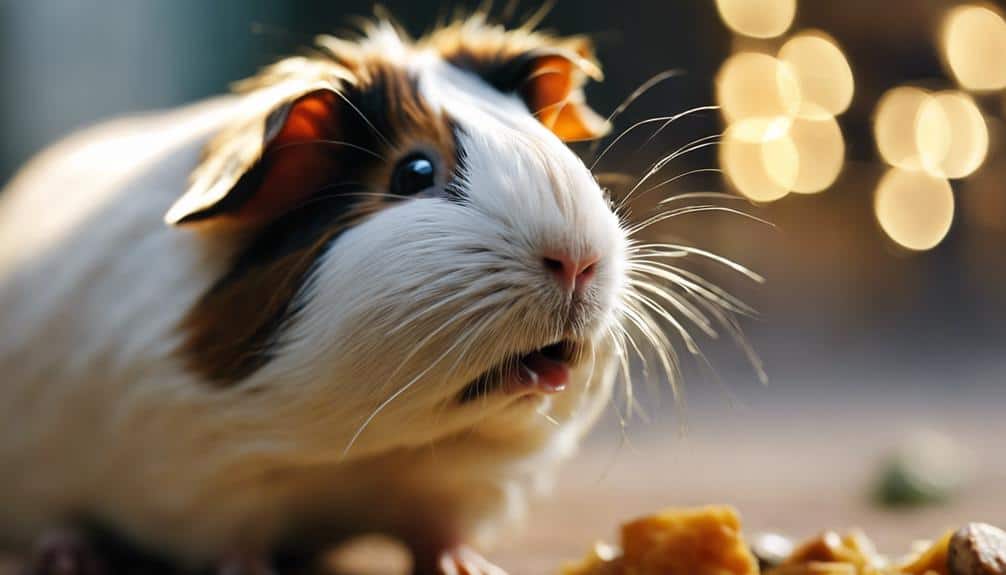
When interpreting guinea pig squeaks and sounds, it’s essential to pay close attention to the frequency, intensity, and accompanying behaviors to accurately understand their communication. Guinea pigs produce a variety of noises, each serving as a form of expression.
Squeaks can range from short and high-pitched to long and low, indicating different emotions or needs. For instance, a loud, persistent squeak may signal distress, while softer, more rhythmic sounds could suggest contentment. Observing the context in which these sounds occur is important for proper interpretation.
Just like a wild bird’s chirps may convey distinct messages, a guinea pig’s squeaks can have diverse meanings based on the situation. Additionally, tailoring your experience with guinea pigs by seeking advice from a Guinea Pig Forum can enhance your understanding of their vocalizations.
Recognizing the Meanings Behind Guinea Pig Squeaks
In our interactions with guinea pigs, recognizing the meanings behind their squeaks plays an essential role in understanding their communication cues. When interpreting guinea pig squeaks, it’s critical to take into account various factors such as context, pitch, and duration to grasp their needs and emotions effectively.
Here are some key points to keep in mind:
- Pain: Guinea pig squeaks can indicate pain or discomfort, signaling the need for immediate attention and care.
- Excitement: Squeaks filled with excitement often precede positive events like receiving treats, exploring new environments, or interacting with their human companions.
- Communication: Squeaks serve as a primary form of communication for guinea pigs to express their desires, emotions, and requirements.
- Interpretation: Understanding the different types of squeaks and their contexts can provide valuable insights into the guinea pig’s current state and help in responding appropriately to their needs.
Guinea Pig Squeaks: What They Convey
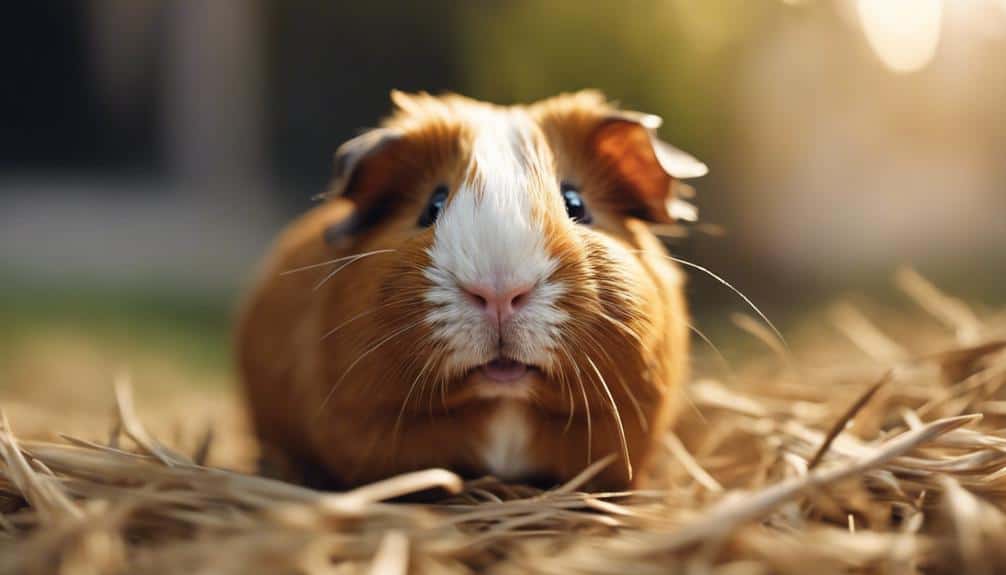
Exploring the nuances of guinea pig squeaks reveals a wealth of information about their emotions and needs. Guinea pigs communicate through a variety of squeaks that convey different messages. Understanding these cues is essential for providing appropriate care and attention to our furry friends. Here is a breakdown of what guinea pig squeaks can convey:
| Squeak Type | Meaning | Example |
|---|---|---|
| Pain | Indicates discomfort or pain | Occurs when touched in a sensitive area |
| Discomfort | Signals unease or dissatisfaction | Often heard during nail trimming |
| Attention | Seeks interaction or care | When approaching the cage for feeding |
| Excitement | Expresses joy or anticipation | Before receiving a treat |
| Communication | Conveys messages or needs | When calling out for companionship |
Conclusion
To sum up, deciphering the squeaks of our guinea pig friends can truly be a delightful adventure in understanding their unique language.
So next time you hear a squeak, remember it could be a cry for attention, a call for food, or just a sign of pure joy.
Embrace the squeaks, cherish the communication, and continue to build that special bond with your beloved guinea pigs.
Happy squeaking!

